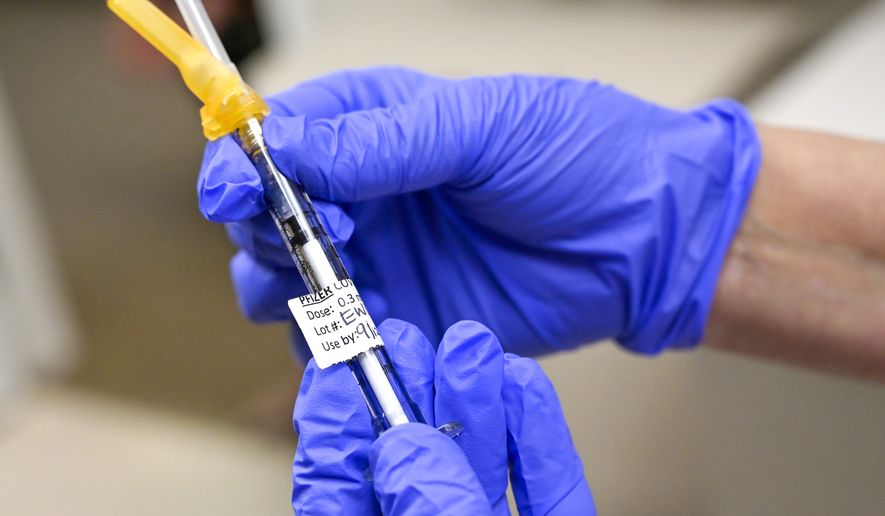OPINION:
The day before the U.S. Food and Drug Administration granted Pfizer full approval to its COVID-19 vaccination, Wisconsin Senator Ron Johnson pleaded with the agency, along with the Centers for Disease Control and Prevention and the National Institute of Health, not to hurry the process.
“I see no need to rush the FDA approval process for any of the three COVID-19 vaccines,” he wrote in a letter to the agency heads, obtained exclusively by the Washington Times, dated Aug. 22. “Expediting the process appears to only serve the political purpose of imposing and enforcing vaccine mandates. The observational phases of FDA approval take time because there is no substitute for time in detecting and determining possible long-term harm.”
Mr. Johnson cited his concerns the FDA short-circuited many steps in their approval process, including the FDA’s decision to cancel assembling an independent safety panel of outside experts to evaluate Pfizer’s application. He also fears the government agencies downplayed adverse events of the vaccinations, citing how according to the Biden administration’s own data, 36.2% of people who received a COVID-19 shot and experienced adverse events, died within two days of getting the jab.
It’s a much higher death rate than all other vaccinations approved by the U.S. since the CDC began tracking the data 31 years ago, which, as Mr. Johnson pointed out, “should raise serious concerns.” These numbers don’t even account for those reporting permanent disabilities, hospitalizations, and total adverse events related to COVID-19 shots.
So what’s the hurry? After all, Pfizer’s FDA approval wasn’t anticipated for another two weeks.
It seems politics may be the answer.
Last week, the Biden administration experienced its worst criticism since entering the White House seven months ago. President Joe Biden faced blistering attacks – from both sides of the aisle – questioning his competency for office amid his disastrous withdrawal from Afghanistan. He saw his approval numbers sink to an all-time low, on everything from foreign policy, to coronavirus, to the economy.
There’s no doubt that the Biden administration wants to switch the narrative from Afghanistan to anything else and fast. It’s also no secret they have been pressuring the FDA to give Pfizer’s vaccination full approval ASAP so that they can justify further mandates and coronavirus lockdowns.
“There are universities and businesses that have been considering putting in vaccine requirements in order to create a safer, a workplace, a learning environment,” U.S. Surgeon General Vivek Murthy told “Fox News Sunday” a day before the FDA’s approval. “I think [full approval] from the FDA would likely encourage them and make them feel more comfortable in putting some requirements in place.”
The FDA previously said their unofficial deadline to get Pfizer’s vaccine approved was by Labor Day. Yet, as the New York Times reported on Friday, the agency was under extreme pressure to expedite the process.
After all, the Pentagon announced this month it would make COVID-19 vaccinations mandatory for its 1.3 million active-duty troops “no later” than the middle of September but would act faster if the FDA’s full approval was granted. Other private and public organizations have indicated the same in recent weeks. On August 8, Mr. Biden’s top infectious disease expert, Dr. Anthony Fauci, said he was “hopeful” the FDA would act in short measure, as “mandates at the local level need to be done,” to curb the virus.
Not surprisingly, Mr. Biden was eager to get out in front of the cameras on Monday to urge requirements for vaccinations after hiding from the American public for the majority of the last two weeks as Kabul fell to the Taliban. He took no questions.
Mr. Johnson is correct to question why the hurry. For many vaccination skeptics, the FDA’s announcement’s timing may seem all too political and not at all scientific.




Please read our comment policy before commenting.